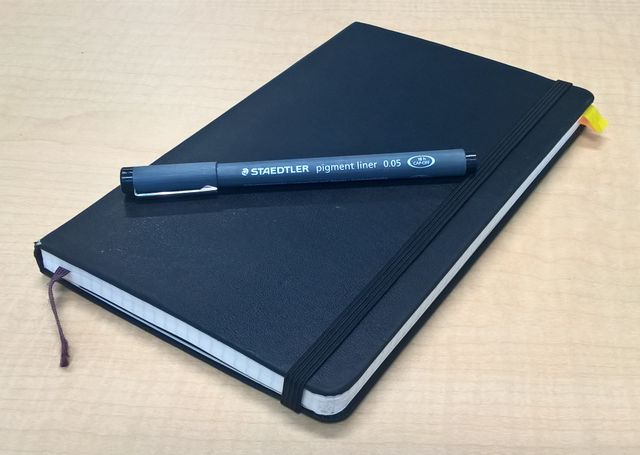The Notebook — Daily and Weekly Work

My notebook is the center of my day-to-day workflow. In it I track what I need to do, what I am doing, what we’ve discussed in a meeting, and countless other things. It isn’t terribly often that I actually go back more than a week or so to look at things — I tend to transfer long-term notes into digital storage after I’ve processed them — but they’re still there, and I find the very act of writing with pen helpful.
However, it isn’t just an ad-hoc thing where I write without structure. There is quite a bit of structure to how I use the notebook, and it helps immensely as I plan and execute my work.